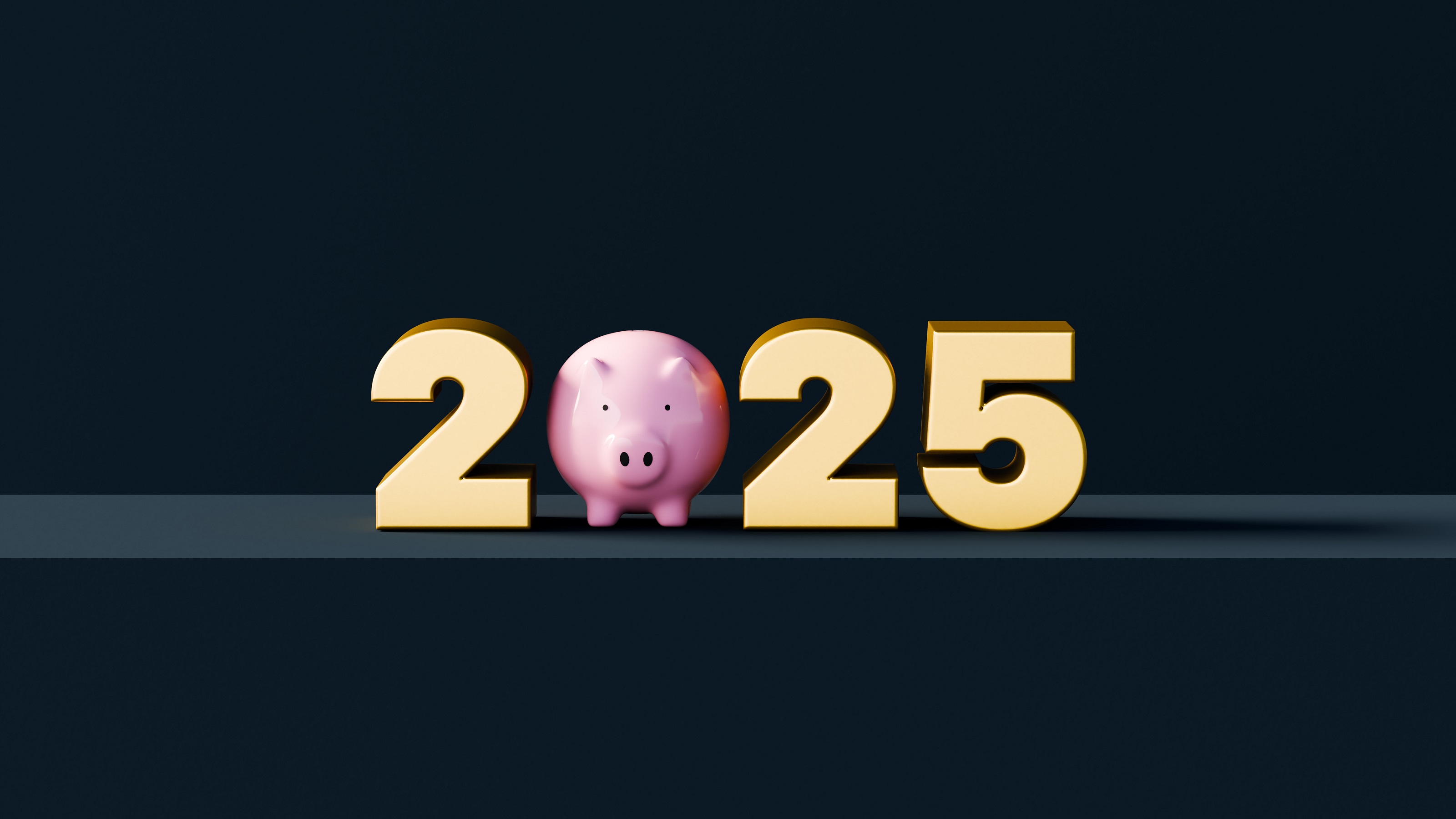
As 2025 kicks off, many of us are making our resolutions for the new year. But as you ponder your fitness goals or a new skill you want to learn in 2025, you should also make a resolution to improve your finances.
Here are a few financial goals you could aim for in 2025.
1. Find easy ways to save
Many people are struggling to make ends meet due to the high cost of living, making it difficult to save for future emergencies or retirement. More than a quarter of adults in the United States say they have no emergency savings, the highest since 2020, according to Bankrate.
Everyone has different savings goals. Are you saving up to buy a house? Do you want to add more to a retirement account? Or do you simply want to build up your savings? Whichever you choose, you need to start with a plan.
The first thing you need to do is take a look at your budget. Are you spending more each month than you are making? Are there areas you can cut back on? Cancel any unused subscriptions or streaming services that you don’t use. Try making coffee at home and skip the $7 daily latte.
Consider putting money into a high-yield savings account, a certificate of deposit (CD) or a money market account. High-yield savings accounts allow you to grow your money faster than a regular savings account.
Unlike many other investment options, you can easily withdraw money from these accounts if you suddenly need access. The best savings rates for high-yield accounts are close to 5%. That means if you deposit $10,000, you’ll have an additional $500 in one year without doing anything else.
If you’re just starting your savings journey, start small. Put 5% of each paycheck into whatever you're saving towards, this could be retirement savings or an emergency fund. A little is better than nothing. When you feel more comfortable or if you get a raise, you can increase your amount to 10% or 15%.
2. Avoid adding to your debt
A great financial goal for 2025 is to avoid adding any debt. Currently, credit card debt in the United States is sitting at an astonishing $1.17 trillion. The more debt you have, the more interest you are paying, which is money you could be using to pay yourself. Even with recent rate cuts, interest rates remain high, making it harder for people to pay off their debt. This is not only keeping many Americans in debt for longer than they should, but also preventing them from progressing toward owning a home, building up their emergency savings or saving for retirement.
No matter what type of debt you have, you need to have a plan for paying it off. The two most popular strategies for attacking debt are the avalanche method and the snowball method. Using the avalanche method, you pay off the highest-interest debt first and then roll that payment into the next highest debt. The snowball method is where you tackle your debt by balance, from lowest to highest.
3. Improve your financial knowledge
When you were growing up, how much were you taught about money and finances? If you are like most people, it wasn’t much, if any. But don’t panic, it’s never too late to learn something new and improve your financial literacy.
Try reading articles, websites or books dedicated to personal finance. This is a quick and easy way to learn more about topics you might not know much about. Also, look into local organizations or financial firms in your area that may host workshops or webinars on various financial topics.
4. Choose an accountability partner
Just like with any goal or resolution, we’re much more likely to stick to it if you have a partner to tag along with. An accountability partner can check in with you as needed and offer encouragement and advice when you start to slip. Letting others know that you are trying to save money can help you cut back on spending as well.
Instead of friends reaching out to go to dinner, they might offer to host a dinner at their home saving you both money. If you are more of a competitor, try turning this into a game with your partner. Whoever pays off a loan first or saves the most during a certain period, owes the other person coffee.
A financial adviser can be one of the best accountability partners. They can help you with many aspects of your financial picture to outline your goals and ensure you stay on track in 2025.
Drake & Associates is an independent investment advisory firm registered with the U.S. Securities & Exchange Commission. This is prepared for informational purposes only. It does not address specific investment objectives, or the financial situation and the particular needs of any person who may view this report. Neither the information nor any opinion expressed it so be construed as solicitation to buy or sell a security of personalized investment, tax, or legal advice. The information cited is believed to be from reliable sources, Drake & Associates assumes no obligation to update this information, or to advise on further development relating to it. Past performance is not indicative of future results. Registration as an investment adviser does not imply a certain level of skill or training.







